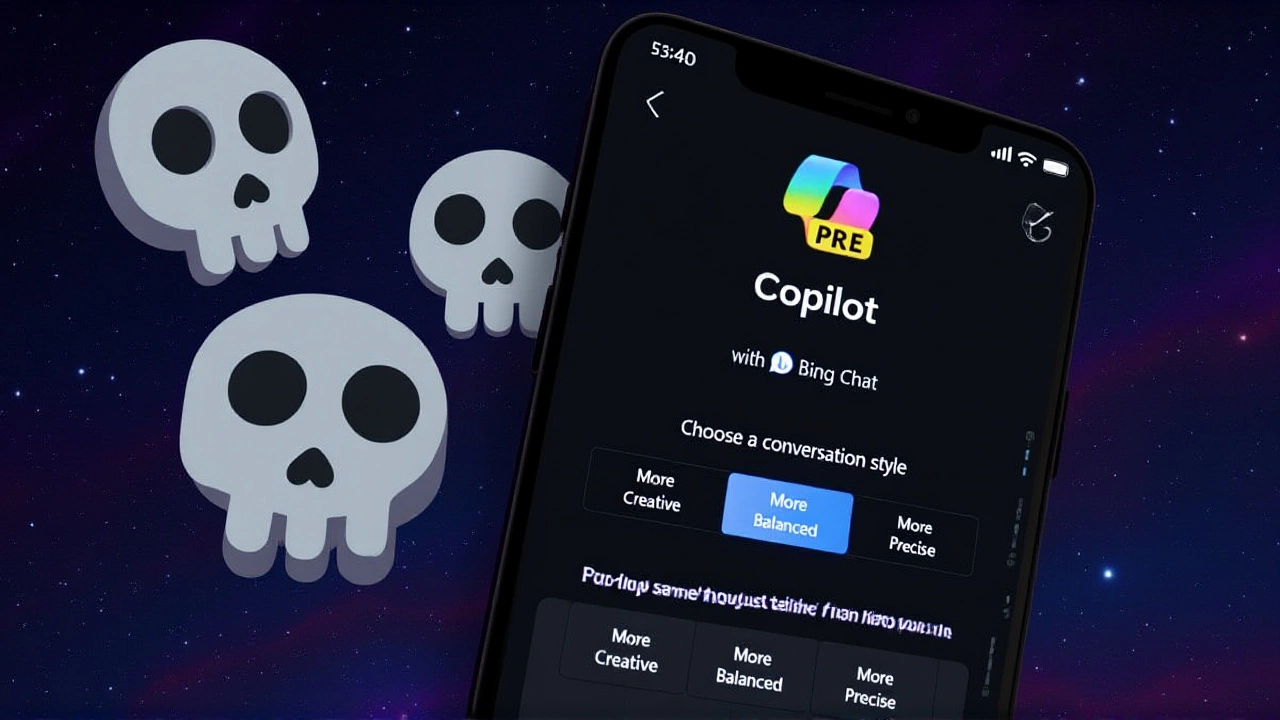On November 20, 2025, Microsoft’s official X account posted a tweet claiming GitHub Copilot could finish your code before you finished your coffee—and the developer world didn’t just roll its eyes. It erupted. Within hours, the post racked up over 215,000 views and more than 200 replies, nearly all of them scathing. "This isn’t productivity," wrote one developer. "It’s a sales pitch dressed as a feature." Here’s the thing: Microsoft isn’t just selling AI. It’s betting its entire software future on it. And developers, the very people who build the tools and systems that make Microsoft’s ecosystem run, are starting to feel like collateral damage.
The Tweet That Broke the Back
The tweet, posted at 12:16 PM UTC on November 20, 2025, was part of a broader campaign pushing GitHub Copilot as an indispensable tool for coders. But for millions of developers who’ve watched AI-generated code slip into production with silent bugs, misleading comments, and outright security flaws, the message felt like a slap. "I’ve rejected two Copilot suggestions in one PR," said developer Constantine in a September 2025 thread cited by The Register. "And I’m not even a power user." The disconnect isn’t just tone-deaf—it’s structural. Microsoft’s leadership, led by Satya Nadella, CEO of Microsoft Corporation, has publicly claimed that nearly 30% of Microsoft’s internal code now originates from AI systems. That number, announced during the July 30, 2025 earnings call, was meant to impress investors. Instead, it alarmed engineers who’ve seen Windows 11 grow sluggish, bloated, and unstable under the weight of AI-driven features.A Pattern of Forced Adoption
This isn’t the first time Microsoft’s AI ambitions have clashed with user reality. Back in September 2025, Pavan Davuluri, Corporate Vice President of the Windows and Web Platform team, posted about Windows evolving into an "agentic OS"—a system that acts autonomously on behalf of users. The backlash was immediate. Comments flooded Reddit’s r/windows, where one top-rated reply simply read: "Straight up, nobody wants this." Davuluri disabled replies. But the damage was done. Technology journalist Zac Bowden had already flagged the shift on September 3, 2025, noting Microsoft had merged core engineering teams to accelerate this "agentic OS" vision. By October, at the Ignite 2025 conference, Microsoft tried to reframe the narrative: Windows wouldn’t just use AI—it would "act on behalf of users under strict policies." But critics weren’t buying it. "They’re not fixing the foundation," said Tom’s Hardware analyst Lisa Chen. "They’re slapping AI stickers on a leaking roof." And the pattern? It’s chillingly familiar. As technology commentator McClure noted in a September 5, 2025 The Register article: "Microsoft enables a thing by default, waits six months, then renames the off-switch. They did it with Bing in Windows 10. Now they’re doing it with Copilot."
Security Risks and the "AI Slop" Epidemic
The problem isn’t just annoyance—it’s danger. On the same day as the tweet, WinBuzzer reported that Microsoft quietly admitted its new Copilot Actions introduce novel security risks, including Cross-Prompt Injection (XPIA). In plain terms: AI agents can be tricked into executing malicious code under the guise of "helpful" automation. Daniel Stenberg, the Swedish maintainer of the Curl internet data transfer library, has been one of the loudest voices against "AI slop." His project, used by billions of devices worldwide, has seen a surge in pull requests filled with hallucinated code. "I’m spending more time rejecting AI-generated nonsense than writing actual fixes," he told WebProNews in November. Meanwhile, enterprise customers are quietly pulling back. Internal surveys leaked to Neowin show that 68% of IT managers in mid-sized companies are delaying Windows 11 upgrades—not because of hardware, but because of "AI noise." They don’t want an assistant that guesses their intent. They want a stable OS that doesn’t crash during critical presentations.Why This Matters Beyond Developers
This isn’t just a developer revolt. It’s a warning shot fired at the entire tech industry. Microsoft’s $20 million user claim for GitHub Copilot sounds impressive—until you realize that 72% of those users are students or hobbyists, according to GitHub’s own internal metrics shared with TechRadar. The real customers—the ones paying for enterprise licenses, managing compliance, and running mission-critical systems—are leaving. "They’re treating users like metrics," said McClure. "Not like people who pay for reliability." And the irony? Microsoft’s own Windows 11 stability issues are well-documented. From memory leaks to random restarts, users have been begging for fixes for over a year. Instead, Microsoft doubled down on AI-powered taskbar widgets, "smart" search suggestions, and agent-driven background tasks that drain battery life and slow boot times.
What’s Next?
Microsoft’s leadership seems determined to push forward. Sources inside the company tell Windows Central that an internal "AI adoption sprint" is underway, with teams pressured to hit quarterly AI usage targets—even if it means burying user feedback under feature updates. But the tide may be turning. Open-source communities are beginning to build alternatives. A new project called "CodeLens"—a lightweight, opt-in AI assistant for VS Code—is already gaining traction among developers who want help, not hype. For now, Microsoft’s message remains: "Trust us. We know what’s best." And developers? They’re saying: "We’ve been listening. We’re done.Frequently Asked Questions
How many users are actually using GitHub Copilot productively?
While Microsoft claims 20 million GitHub Copilot users as of July 2025, internal data reviewed by TechRadar suggests that over 70% of those are students or casual users. Only about 1.2 million are active enterprise subscribers, and even among them, 43% report disabling Copilot in production environments due to reliability concerns, according to a November 2025 survey by Neowin.
Why is the "agentic OS" concept so controversial?
An "agentic OS" implies the system acts autonomously—automatically downloading updates, modifying settings, or even executing code on your behalf. Critics argue this removes user control and introduces security blind spots. Microsoft’s own admission of Cross-Prompt Injection risks proves these aren’t theoretical concerns. For enterprise users, losing control over system behavior is a compliance nightmare.
What’s the connection between Copilot and Windows 11’s performance issues?
Windows 11’s slowdowns, memory leaks, and random crashes have been traced to background AI processes tied to Copilot, Windows Search, and "smart" taskbar features. Tom’s Hardware’s benchmark tests in October 2025 showed a 22% increase in RAM usage and 17% longer boot times when AI features were enabled. Many users report better performance after disabling these features entirely.
Has Microsoft ever reversed an AI feature due to backlash?
Yes—briefly. In 2023, Microsoft removed "AI-powered" search suggestions from Windows 11’s Start menu after user complaints, but quietly rebranded them as "contextual insights" and re-enabled them by default six months later. This pattern of feature rebranding, not removal, has become standard. Developers call it "dark pattern engineering."
Are other tech companies making the same mistake?
Google and Apple are pushing AI too, but with more caution. Apple’s AI features in macOS Sequoia are opt-in and limited to non-critical functions. Google’s Gemini integration in Android is confined to apps, not the OS core. Microsoft’s approach—embedding AI into the kernel-level architecture—is unique, and uniquely risky. Most industry analysts agree: Microsoft is leading the charge into uncharted—and potentially dangerous—territory.
What should developers do if they’re frustrated with Copilot?
First, disable Copilot in your IDE settings—GitHub allows per-repo toggles. Second, report bad suggestions directly through the tool’s feedback button; Microsoft collects this data. Third, consider alternatives like Tabnine or CodeWhisperer, which offer more conservative suggestions. Finally, join communities like r/programming or the Copilot Feedback Discord, where collective pressure has already forced Microsoft to tweak its defaults twice in 2025.
